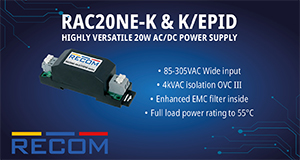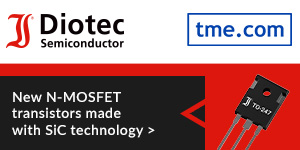- Optimized, halogen-free flame-retardant PBT grades
- Highly reinforced polyamides for mechanically stressed parts
- New materials for LED components
- Hydrolysis-stabilized PBT for engine compartment parts
Specialty chemicals company LANXESS is participating in this year’s “Plastics in E&E Applications” conference with its own stand. “The focus of our exhibit is on halogen-free flame-retardant Pocan BFN grades, the highly reinforced polyamide 6 structural materials from the Durethan range and the Pocan HR polybutylene terephthalates developed for use in unnatural climatic conditions,” explained Alexander Radeck, application development expert in the LANXESS High Performance Materials (HPM) business unit. “We are also showcasing new polyamides and polyesters for LED chip sockets, LED housing components and thermally conductive parts.”
Alternative to PBTs with halogen-based flame retardance
The glass fiber content of the Pocan BFN halogen-free flame-retardant PBT compounds can be up to 30 percent. Radeck: “We want to show that they provide a real alternative to PBT compounds with a halogen-based flame retardance package not only in ecological terms but also with respect to their technical performance profile.” For example, they demonstrate better thermal stability and higher tracking resistance and dielectric strength. Via the glass fiber content it is possible to attain a level of mechanical properties almost comparable to those of their equivalents with halogen-based flame retardance.
High-modulus materials – free-flowing, strong and stiff
LANXESS will also demonstrate the possibilities that highly reinforced polyamides offer in the design of very strong and stiff components for highly stressed applications, using a mincer, for example. “Despite their high degree of reinforcement the materials are as free-flowing as standard polyamides that have a considerably lower filler content, which is why they can also be used in thin-walled designs,” added Radeck. The high-modulus products include low-distortion grades reinforced with glass microspheres and flame-retardant grades with a UL 94 V-0 classification.
High reflectivity, thermally conductive, lightfast
Another focus is on the wide-ranging portfolio of new materials for LEDs (light-emitting diodes) and other lighting technology. One innovation for LED chips comprises compounds based on polycyclohexylene dimethylene terephthalate (PCT). “These hardly age when subjected to thermal stresses so that in contrast to high-temperature polyamides they retain their high reflectivity,” explained Radeck. Another novelty is a polyamide 6 that not only has high light reflectivity and thermal conductivity but is also very flame-retardant. Radeck: “The compound contains a halogen-free flame retardance package and is specially customized for heat-dissipating components such as cooling elements.”
Effective hydrolysis stabilization and flame retardance
The use of electronics in cars is increasing. In Würzburg therefore, LANXESS will be showcasing hydrolysis-stabilized PBT grades for safety-related components that need to remain functional in a hot and moist environment, such as under the hood. Their glass fiber contents range from 15 to 45 percent. A non-reinforced grade is also in the portfolio. One new product is the hydrolysis-stable and also extremely flame-retardant grade Pocan BF 4232 HR. It complies with fire safety standard UL 94 of the Underwriters Laboratories (UL) test institute in the United States in all the colors tested, with the best classification of V-0 for a test specimen already being achieved from 0.4 millimeters thickness. The compound demonstrates its high hydrolysis resistance in climatic aging tests at 85 °C and 85 percent relative humidity. “Even after 100 days’ storage, the tensile stress at break and elongation at break are still over 80 percent of the already high baseline values,” said Radeck.
Detailed information on the properties, applications and processing technologies of Durethan and Pocan can be found at www.durethan.com and www.pocan.com in the HPM TechCenter.








